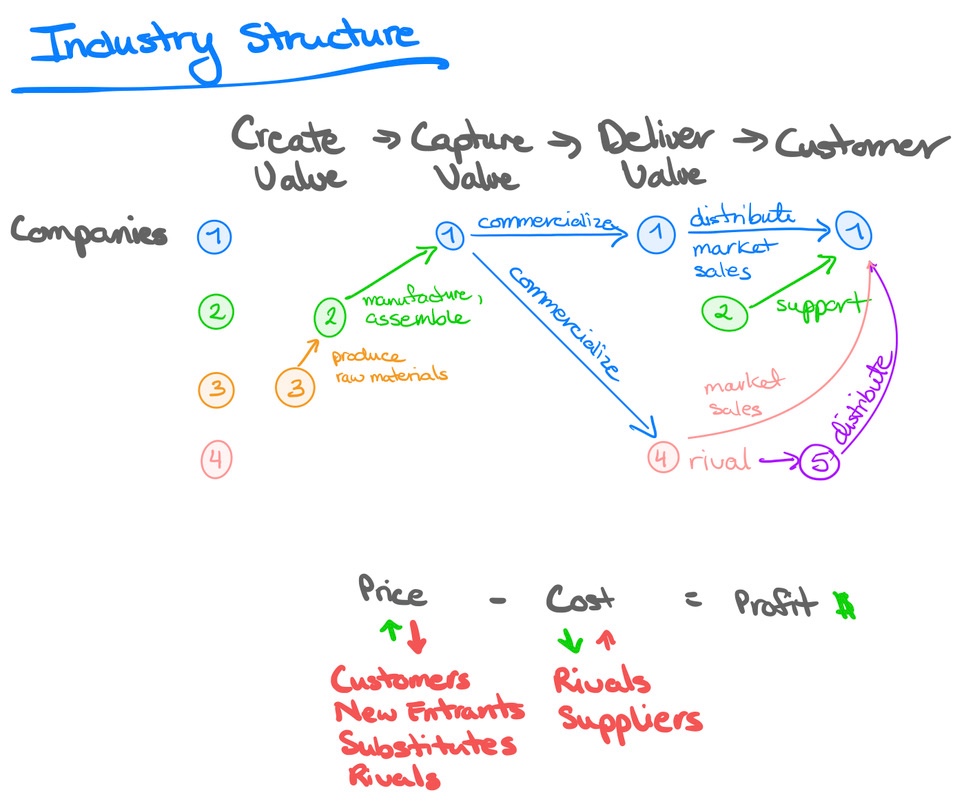Silicon Valley has it wrong — the goal isn't scale
How to choose your startup idea - part 2?
The a-ha series is about the moments when I felt something new. "Jot down the moments when you learn something new. And what's really important is it's not just about knowing something new — it's feeling something." — Coe Leta Stafford, IDEO
Try and fail
Read part 1 So many interests, how do I pick just one? Recap of what happened:
- Too many interests.
- No incentive to do homework on industries out of our expertise.
- No incentive to prioritize over daily life or work.
- Filtered out ideas and fell for the myth — you only pursue a startup idea you can do at scale and can become a billion-dollar company.
- NEW: Missing the skills in business creation, strategy, growth — coming up in part 3.
I'm going to talk about #4 of what happened?
What's the first thing you think of when you hear the word startup and technology? We all think something along this:


For us at YC, the definition of a startup is a company that is designed or created to try to grow very quickly. So if you're not trying to build a company that grows very very fast then you're just building a normal company. It's a small business, and there's nothing wrong with that, but these companies are the ones that investors are interested in.
So if you're hoping to build something that will have tons of users, that will have huge valuations, that'll be able to attract venture funding, then the evidence that we want is evidence that shows that your company can grow quickly. — Kevin Hale How to Evaluate Startup Ideas [Y Combinator]
~~Stages~~ types of my business?
My a-ha feeling is these aren't stages of business. It's what you are.
Decide at the start what type of business you want to be. There's nothing wrong with not trying to be the next Uber.
If your interests, industry and professional skills lead towards something less than a scale business.
- Focus on that!
- Don't filter it out.
- Don't scale it into a market size that doesn't exist and begin your race to zero.
Aiming for best will put you into a price race to zero. — Michael Porter
See Everybody talks about it. I didn't get business strategy until Michael Porter.
Types of businesses:

- Lifestyle business: you create (build the thing), capture (sell the thing and keep the profits), and deliver (distribute the thing) all the value.
- Small business: you need small amounts of money to pay a team to help you create and deliver the value. You capture most of the value (profits) and make enough to pay your team.
- Medium-Large Business: you need a lot of money to build a team to create, capture, and deliver the value. You build up your team to serve many customers with a unique offer and value proposition.
- Growth business: similar to medium to large. You also generate significant positive profits, which increase at significantly faster rates. You put most or all of your profits back into expanding your business. Your growth is linear.
- Scale business: revenue increases without a substantial increase in resources. Your growth is exponential.
Don't take venture capital if you are not a venture scale opportunity. Everyone in Silicon Valley is biased to take money and go for a grand slam. — Stratechery, Ben Thompson
Do I do something proven or new?
Choose to:
- Do something that's already proven and done before.Copy a business idea you see working elsewhere (i.e. print shop). Bring it into your neighbourhood. It's more likely to breakeven, or be successful and make a profit.
- Try experiments to do something that hasn't been done and might not work. It's risky, hard, no guarantees, and you will feel a lot of failures.
Not impossible - name something that is possible today that WASN'T impossible first. — Mick Ebeling Not impossible
End goal for your business
There isn't a right answer. You have to decide what's important to you:
- To make enough to support your family and live a comfortable lifestyle.
- To create jobs for your community.
- To exit/sell the company and achieve financial freedom.
- To make as much money as possible — be a shark.
- To protect the industry structure and how its rivals get a share of the profits.
- To solve real-world problems beyond just making a profit.
- To solve hard problems.
- To work on interesting ideas.
- To pursue mastery (i.e. craftsmanship).
If you were allowed to be operating in a mastery framework. If you were allowed to really take agency over your learning, and when you get something wrong, embrace it — view that failure as a moment of learning — that number, the percent that could really master calculus or understand organic chemistry, is actually a lot closer to 100 percent. … In the industrial age, society was a pyramid. At the base of the pyramid, you needed human labor. In the middle of the pyramid, you had an information processing, a bureaucracy class, and at the top of the pyramid, you had your owners of capital and your entrepreneurs and your creative class.
But we know what's happening already as we go into this information revolution. The bottom of that pyramid, automation, is going to take over. … Is it just going to be that very top of the pyramid, in which case, what does everyone else do? How do they operate? Or do we do something that's more aspirational Do we actually attempt to invert the pyramid, where you have a large creative class, where almost everyone can participate as an entrepreneur, an artist, as a researcher?
— Sal Khan Let's teach for mastery -- not test scores
- To dream to inspire humanity (not just to solve problems).
But life cannot just be about solving one miserable problem after another. That can't be the only thing. There needs to be things that inspire you that make you glad to be to wake up in the morning and be part of humanity. That's why we did this. — Elon Musk Elon Musk Crashes Westworld Panel at SXSW 2018
13.To be obsessed with uncovering a question/ mystery in the world.
Ben: What makes Stripe a good investor? Is it just your guys' judgment, or do you get data? You can be a good lender because you have this interesting view on business' cashflow. Do you have views, unique insights that drive these investments, or is it really just a matter of you have a long-term view of how Internet's going to evolve, and that's your insight?
John: Well, we're investors but as you know, these things are lagged, and so I think we'll be able to properly score Stripe as an investor in five or ten years and see how we did. Ben: Fair, I guess what I'm getting at is your investors obviously think you're good investors, because they are implicitly having you invest their venture capital. So other people definitely think you're good investors. What gives them that confidence?
John: I think there's a set of questions that we obsess about around what's required to grow the internet economy, plus what are the impediments holding back businesses.
— Ben Thompson interview with CEO John Collison of Stripe. Stripe: Platform of Platforms
So what's mine?
- Type of business — medium++.
- Do something that hasn't been done before.
- End goal — 5+.
This is my first time trying. What has your experience been like selecting the first idea?
And why am I leaving the banking industry?
A scenario comes up at work:
Me: Why do we need to do process X? Everybody: Because we're a bank. Me: But why are we a bank? Everybody: exact quote — Because we're a bank, Tom. Me: Ok, we're a bank. Help me understand, how does doing X help…" Everybody: exact quote — Tom, we're a bank, we need to do X. Old Me: stays persistent… New Me: We need more great companies. I'll try to start one, and if I fail, I'll join one that is trying to become one.
This isn't to point at banking or the people in it. I now realize that enterprises' end goal is #5 — "To protect the industry structure and how its rivals get a share of the profits."

Revealing the magician's secret. How business people design businesses?!?
Read part 3 What does a business person do anyways? Revealing the magician's secret